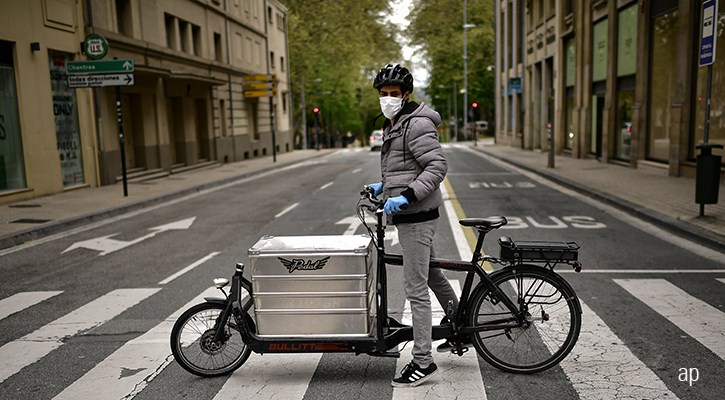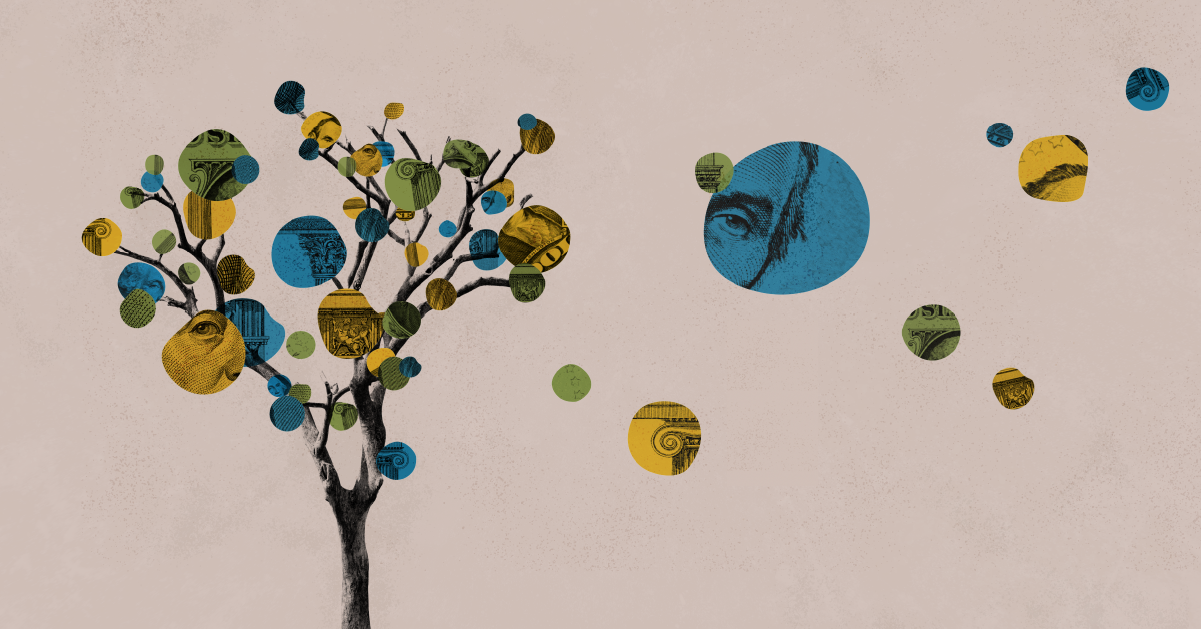
From stockpiling toilet rolls to ordering pizza deliveries, shopping has been transformed during lockdown. But how many of these new trends will still be with us permanent once restrictions start to lift?
Consumer goods giant Unilever (ULVR) and Swiss food and drinks company Nestle (NESN) expect the changes to consumer behaviour to be long-lasting, even when people start returning to work and the economy starts to re-open. There are some obvious winners if that thesis proves correct.
But while some retailers, especially online ones like Amazon (AMZN) and Ocado (OCDO), are having a good crisis, the overall picture remains grim, with UK retail sales falling at a record rate in March, according to the Confederation for British Industry (CBI).
Sales at Next (NXT) dropped 41% in the quarter and John Lewis says it may not re-open some of its shuttered stores. Cruise companies and airlines, meanwhile, face an existential crisis and have seen their shares plunge.
Consumer spending covers such a wide area, from takeaway food to hotel rooms to luxury watches, it’s difficult to make broad predictions about people’s behaviour during and after the crisis. The managers of the Invesco Global Consumer Trends fund, Ido Cohen and Juan Hartsfield, argue there is no going back to the old ways of working and consuming. Social distancing has changed everything, from how we communicate to how we shop, and this will “drive long term behavioural shifts that will not revert back to prior routines”.
Takeaways Here to Stay
Jack Neele, manager of the five-star rated Robeco Global Consumer Trends fund, expects consumer habits picked up during lockdown such as online meal delivery to continue even as restaurants re-open. People are trying online takeaways for the first time and may be converted into loyal customers even if restaurants re-open this year, he argues, particularly as dining under social distancing guidelines may not appeal.
“If the experience has been good, platforms can hang on to these customers,” Neele says. That bodes well for companies such as Just Eat Takeaway (TKWY), which makes up 1.7% of the Robeco fund’s portfolio.
Carmignac head of equities David Older likes Germany's HelloFresh (HFG) and Delivery Hero (DHER) in the home delivery space. He calculates such businesses can significantly grow their market share by retaining just 20% of new customers.
But Invesco's Cohen and Hartsfield have been selectively buying back into the restaurant, leisure and travel sectors - pointing out that those restaurants that do re-open will find themselves in a stronger position post-lockdown as many of their competitors won't survive.
Luxury vs Local
Neele is less enthusiastic about the luxury sector though, which will struggle as high-end shops miss the footfall of well-heeled customers, particularly those passing through airports.
He argues that in the current pandemic, not only will people have less disposable income, they will be reluctant to flaunt their wealth. The Invesco managers agree – with so many people at home, the opportunities to show off new clothes or jewellery are diminished: "Luxury items are part of expressing style or status, and occasions for such display have been reduced during this period of social distancing”, they say. Morningstar analysts have just downgraded luxury company valuations across the board over recession fears.
Luxury goods spending may be out during the crisis, but there has been a boom in DIY-related products, particularly as many hardware retailers have either re-opened or remained trading through lockdown. US home improvement retailer Lowe's (LOW) is the third biggest holding in the Invesco fund.
But it's not just the retail giants poised to prosper; a key trend observed during the crisis is for people to shop locally, and Neele thinks this trend will continue, favouring smaller firms. Invesco’s Cohen and Hartsfield agree: "We are currently interested in companies that cater to local consumers such as restaurants, ride-sharing companies and regional casinos – we expect consumers will be willing to return to their local establishments to some degree fairly soon.”
Accelerating Trends
While the path of the pandemic and an easing of restrictions on daily life are uncertain, it is difficult to make predictions about how consumer behaviour will change. These managers argue that the lockdown may only have served to accelerate key trends that were already developing: the rise of contactless payments, online deliveries, computer games and streaming services, for example. These will build up further momentum this year and beyond.
What about the sectors that will struggle to recover? Until a vaccine is developed, people won't want to travel abroad for some time, Cohen and Hartsfield argue, and that is not good news for tourism-focused companies.



















